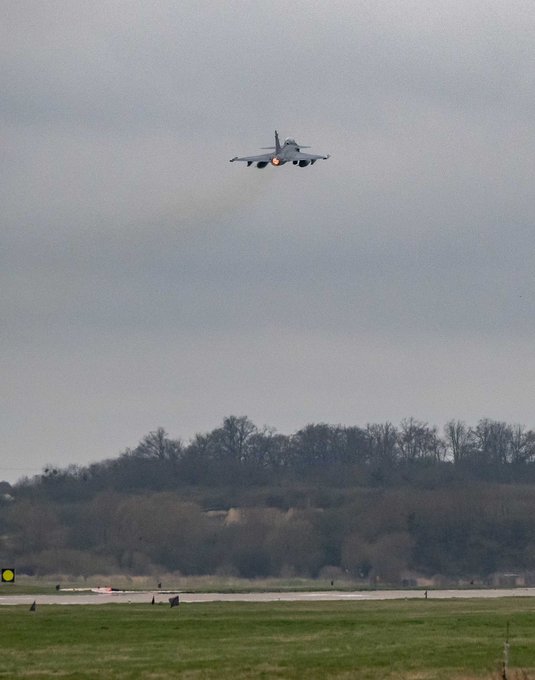Two Swedish fighter jets operating under NATO command were scrambled Thursday to intercept a Russian reconnaissance aircraft nearing Polish airspace, in a move that underscores the escalating aerial tensions over the Baltic Sea.
According to Sweden’s Armed Forces, the jets, deployed from the NATO airbase in Malbork, Poland, were sent to confront and escort away a Russian IL-20 “Coot” reconnaissance plane detected approaching the Polish border.
“The plane was close to Polish airspace, so we went up to signal our presence, make a visual identification, and escort it out of the area,” Swedish Air Force spokeswoman Therese Åkerstedt told AFP.
The interception occurred in international airspace and marks the third such incident involving Russian aircraft in the region within a week. NATO Air Command later released images of the encounter on social media, showcasing the Swedish jets shadowing the Russian plane.
This latest incident comes on the heels of similar operations by the British Royal Air Force. Last week, Britain dispatched Typhoon fighter jets to intercept a Russian IL-20 over the Baltic. Just two days later, the same jets were launched to track an unidentified aircraft departing from Kaliningrad airspace.
British Minister for the Armed Forces, Luke Pollard, emphasized NATO’s commitment to collective defense: “With Russian aggression growing and security threats on the rise, we are stepping up to reassure our Allies, deter adversaries and protect our national security.”
Tensions in the region have steadily intensified since Russia’s full-scale invasion of Ukraine in 2022. Sweden, a traditionally neutral country, joined NATO in March 2024, further altering the security dynamics of Northern Europe.
Analysts warn that these repeated airspace provocations could raise the risk of miscalculation between NATO and Russian forces, especially as the Baltic region becomes an increasingly contested zone.
As NATO continues its vigilance, the alliance has reiterated its stance: while prepared to respond to threats, it remains committed to maintaining peace and stability across Europe.
Read also: King Charles discusses Ukraine, NATO in Italian parliament address

